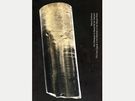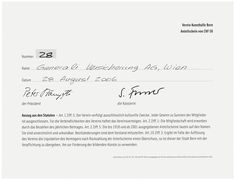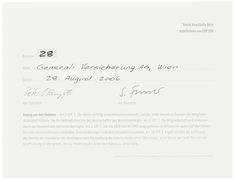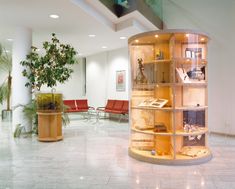Maria Eichhorn
Maria Eichhorn was born in Bamberg, Germany, in 1962. She studied at the Hochschule der Künste (HdK) in Berlin with Karl Horst Hödicke from 1984 to 1990. The artist was awarded the George Macunias Prize in 1992 and the Arnold Bode Prize in 2002. She participated in Documenta 11 in 2002 and in Documenta 14 in Kassel in 2017. For the 59th Biennale di Venezia in 2022, Eichhorn redesigned the German pavilion, which was monumentally expanded in 1938 during the Nazi era. Maria Eichhorn lives and works in Berlin.
After a start in painting, she set out at the HdK to explore the basic conditions of art in a series of subtle interventions, beginning with "Entnutzte Treppe" from 1987. Since 1989, she works on monochromatic relief inscriptions, as in "gemischtes Doppel/mixed doubles" (1992) at the Vienna Secession, where she was reacting to a situation in a group exhibition. In 1989, Eichhorn also embarked on the "Vorhang" project, where curtains were installed in different contexts. On many occasions she has invited individuals from other disciplines to participate in process-oriented works, such as her "Arbeit/Freizeit" project (1994-96), organized on behalf of the Generali Foundation. Here, she questioned employees at the headquarters of the Generali Insurance Company in Berlin about their work and leisure activities and placed selected objects inside a specially constructed display case in the company building. Eichhorn involved a number of political groups in "Plakatwand", her contribution to "Orient/Ation", the International Biennial at Istanbul in 1995, while in "Skulptur. Projekte in Münster" in 1997 she persuaded a tenants’ union to participate. Art and its entanglement in other social realities also forms the background to "May 1, Film, Medien Stadt" (1999) at the Portikus exhibition space in Frankfurt, where the artist transformed the exhibition space into an editors’ office, with, among other things, a complete typographical workshop. In "Das Geld der Kunsthalle Bern" (2001-02), Maria Eichhorn was concerned with the actual financial needs and requirements of the institution. Her contribution to the Documenta 11 at Kassel in 2002 was to establish an "Aktiengesellschaft" that would tolerate no profits from capital gains. In so doing, she raised questions about both the principle of a profit-oriented social system and the role played by capital in the artistic production process. (Monika Vykoukal)
read more read lessBooks of artists
Maria Eichhorn. D.S.B.D.S. D.S.B.D.U. D.U.B.D.U. D.U.B.D.S.. Ed. Goldrausch Frauennetzwerk. Text by Siano, Wolfgang. Berlin, 1990.

Maria Eichhorn. Ed. Kunstverein in Hamburg; Kunstmuseum Luzern. 1993.
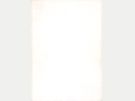
Maria Eichhorn. Wie entsteht eine Stadt? Text by Eichhorn, Maria.

Maria Eichhorn. Curtain (Denim). Lectures by Yuko Fujita, Mika Obayashi. Ed. Center for Contemporary Art. Kitakyushu, 2000.
Maria Eichhorn. Aktiengesellschaft. Text by Eichhorn, Maria. Munich: Verlag Silke Schreiber, 2002.
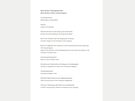
Maria Eichhorn. Bibliothek Biblioteca. Ed. Autonome Provinz Bozen Südtirol. Munich: Verlag Silke Schreiber, 2004.
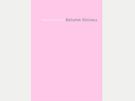
Maria Eichorn. Campus, Politische Mündigkeit, Nr. 01. Ed. Maria Eichhorn for Province Bolzano South Tyrol. Texts by Ault, Julie; Grosse, Julia; Perjovschi, Dan; Riedmann, Sylvia; Steyerl, Hito; Wagner, Silke et al. Cologne: Buchhandlung Walther König, 200

Maria Eichhorn. (Publishing the fact that something will remain unpublished / Veröffentlichen, daß etwas unveröffentlicht bleibt). Cologne: Buchhandlung Walther König, 2006.
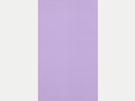
Maria Eichhorn. Aktiengesellschaft. Ed. Berndes, Christiane; Niemann, Kerstin for Van Abbemuseum. Texts by Bezzenberger, Tilman; Eichhorn, Maria; Esche, Charles. Köln: Buchhandlung Walther König, 2007.

Maria Eichhorn. Die Zeitkapsel im Wasserfall der Steinach. The Time Capsule in the Waterfall on the Steinach River. Texts by Bitterli, Konrad; Frigg, Silvio; Naef, Henry; Büchi, Marius; Obrist, Hans Ulrich. Cologne: Buchhandlung Wather König, 2012.
